Following on from our first Mavens discussion of 2015 - Hopes and Fears - market analyst David MacQueen predicted that Apple and Google would each generate $20 billion in gross app store revenues during 2015.
Clearly a lot of revenue, how do we square this with the fact that we're seeing stasis at the top of the top grossing charts, with the most successful developers hoovering up an increasingly large slice of the increasing pie?
More positively, we asked our Mavens -
What advice would you have for the F2P game developers/publishers who don't have $500,000 for a UA launch campaign?
Is the much vaunted Long Tail dead or irrelevant for a F2P game market that's winner takes all?

A games programmer before joining Sony’s early PlayStation team in 1994, he then founded developer Pure Entertainment, which IPO’d and launched a free-to-play online gaming service way back in 1999.
He was also a director of pioneering motion gaming startup In2Games, which was sold to a US group in 2008.
Along the way, he’s been a corporate VP, troubleshooter, and non-exec to a variety of companies and investors in and around the games sector.
Harry was European CEO of Marvelous AQL, a Japanese developer and publisher of social, mobile and console games, known for console games like No More Heroes and Harvest Moon, but now highly successful in the free-to-play mobile and web space in Japan and Asia.
Harry is CEO of Magicave.
It's the games with the highest LTV that are able to spend the most money to acquire users.
Almost by definition, user acquisition costs are going to be determined by the games with the highest LTV.
- If Game A makes an average of $10 a user, it can spend $8 to acquire and service users and still make 20% profit.
- If Game B 'only' makes $5 per user, Game A can outbid it every time.
Taken to extremes, if they're buying up as much inventory as possible, only the games with the highest LTV can realistically do paid user acquisition.
Of course, in practice, different games appeal to different people so there's room for quite a few games to be doing big time paid user acquisition. But the bottom line is that if your game makes less money per user than, say, Game of War, then Machine Zone will always be able to outbid you for a user if they're using the same channels you are.
It all starts with the game - can someone realistically keep enjoying your game for months, or years? Is there enough entertainment/value there to make them want to spend and, crucially, to feel they've got value from that, so they'll want to spend again in the future?
Only once the game is right does the size of your marketing budget start to matter.
Sure, you need enough money to operate the game and bring in small numbers of players during your soft launch phase, but, beyond that, if you have a game that people love to play, that makes money, you can find a partner (publisher, investor, invoice discounter) who can help you finance your UA.
We should stop obsessing with the top ten games ... that doesn't matter if developers can still thrive lower down the rankings.Harry Holmwood
Most games won't reach the monetisation levels we see at the top of the charts, but there are plenty of great games and great teams doing really well by staying in the Top 1-200 grossing charts for a long time.
They tend to be games that are good at retaining players, even if they don't monetise like the top performers.
We should stop obsessing with the top ten games, maybe they are unassailable for the time being, but that doesn't matter if developers can still thrive lower down the rankings.
So really, I think the best strategy is to focus your thinking not on user acquisition, but on user retention, particularly through things like live event systems and social functionality.
Get that right, and everything else can be made to work.
Following on from what Harry has said (which I think is spot on), when thinking about this I see a 2 x 2 matrix:
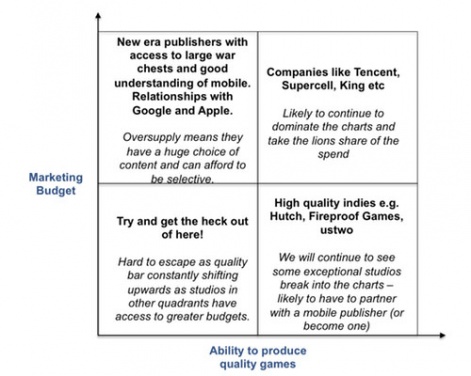
It reminds me of European football where the teams at the top get more fans and then as a result get the lions share of the TV revenues which they can re-invest in players (and marketing) to stay at the top.
The hard place to be for developers is clearly in the bottom left which is the long tail and where the competition for probably only about 20% of the total revenue pie is greatest.
Developers have to try and do more with less.John Griffin
To escape this, developers have to try and do more with less. They have to out-innovate the bigger guys applying more creativity to compensate for lower budgets. Quality of game design and level of polish are no longer enough to get out of here - those are assumed now.
Developers need to make sure they have optimised the retention and engagement characteristics of their games. Once they have done this and can demonstrate it there will be plenty of open doors to people with marketing dollars - or as Harry says, "Get that right, and everything else can be made to work”.

Adam has been in the mobile game industry since 2007, creating games independently. He's since grown into a full 50+ person studio manager.
Recently he's taken a position at Wooga in Berlin to sharpen his design skills and work with the world's best to create amazing, well-crafted products onto the mobile marketplace.
My suggestion for a small F2P game developer?
In order to get the volume needed, you're going to need to do performance marketing. You're going to need substantial marketing budget.
- Some ways you can attempt :
- Focus & get lucky with a high viral hit - Words with Friends, Flappy Bird etc.
- Get featured by Apple and have an ad-driven model (Crossy Road)
- Be okay with a much smaller amount of revenue. CPI can be manageable at low volumes.
- Find a publisher that can get you the $500,000.
It's a winner-takes-all market.
One thing that appears lost to many is that there's still a lot of profitable business to be had outside the top 5 grossing.
The scale is just several factors smaller.
I always think it's worth pointing out that the Long Tail is a fabulous thing if you're a distributor, but an appalling thing if you're one of the things being distributed.
For Apple or Google Play, it's great, or looking beyond our industry, for record labels, for Netflix, for Amazon, it's all great. There are loads of things that you don't (typically) even make, someone else spends all that capital, and you take a share of the revenues for selling it.
The things at the top of the charts make loads of money too, but then there are thousands of niche things, many of which will never make back their capital outlay, but help the distributor immensely because it helps them attract a massive customer base, and they're not the ones making the loss.
The Long Tail only really works for the distributor, and the few that reach the top, but actually being one of the "things" in the Long Tail is typically an awful place to be.
You need to find your own audience, your own way of generating an income, and not worry about the top 100 - at least not at the start.David MacQueen
One of the other reasons that the Long Tail is wonderful for distributors is that it tends to be reasonably dynamic - or at least dynamic enough, from their perspective. There will be the underground hit, the next big thing, that seems to come from nowhere.
In fact, because it's a big distributor with a huge audience, all of the new things go into that store, so they always have the next big thing. Look at any industry, you can see the same thing. And it's not always the marketing that makes the next big thing. I think I could safely say that One Direction would not be one of the top acts of 2014 were it not for the marketing behind them, but I don't think I would say the same thing about Bastille (yes I know they're with a major label now, see next point).
Marketing comes second
Harry's comments are on the money - if you don't have half a million to spend on advertising, get your game right first and then find a partner. Or write some good songs first, or make some short films, or write some short stories, or start a portfolio of your portraits, whatever industry you're in.
Is this industry tougher? Yes, because it doesn't cost the salaries of 10 people for 6 months to write a short story. It's more similar to the TV or movie industry, because the product is more expensive to make. And while you hear of "unknown" people pitching a movie or a TV show and getting a load of funding, those "unknown" people are actually probably quite well known in their own circles.
They've probably made a load of short films that have only ever been seen by a few hundred people at most, but they have their audience. It's not the audience that the upcoming Star Wars movie is going to have, but they are in same market, just waaaaaaaaaaaay down there in that Long Tail.
You know, where George Lucas was when he made THX 1138.
So to me, as an outside observer, Jon's question reads a bit like "How do I get my short film to compete with the next Star Wars movie?"
The answer is that you don't, because you're not Disney (unless you are, in which case I'm glad the defrosting from the cryogenic freezing went well). And you don't have to; while the audience is a lot smaller, the budget for a short film is a lot smaller than a Hollywood blockbuster too.
So all that is really a rather long-winded way of saying that you need to find your own audience, your own way of generating an income, and not worry about the top 100, at least not at the start.
The discovery problem
However, an issue with the mobile games industry in particular is what we analysts like to call a structural problem.
Finding your own audience is not simple, because the only way to get someone to download your game is through the app stores run by the OEMs. It's like if, in the movie industry, every single film, from indies to blockbusters, is only shown in one single multiplex. This leads to the problems we are having with discoverability.
Where are the indie mobile games stores?
Well a few do exist, but they are not particularly successful. Not as successful as, say, Steam for example. Or looking at other industries, this is why something like Netflix is shaking up the TV and movie industry - the shows you watch are no longer controlled by the deals done by the pay TV company you happen to be with.
And in mobile there's a greater structural problem, because it's only for platforms other than iOS that it is even possible to not use the app stores for distribution. So it's probably a good thing that Apple is not going to be number one any more. I doubt it'll change Apple's closed ecosystem, but at least it's more likely that a games developer could generate a decent income on other platforms/stores alone, and new routes to the consumer might actually stand a chance.
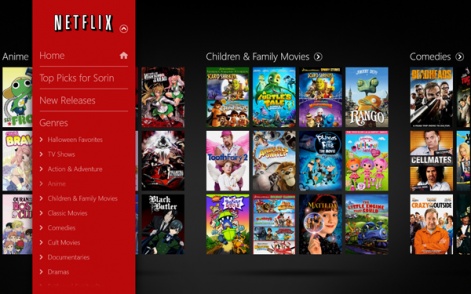
There's not much point in making "Steam for mobile" if that doesn't work with the top platform, but it becomes more viable if that isn't the case.
Of course, as a developer you can't easily go and set up something like Steam for mobile, you pretty much have to work with what's there. How do you go from "unknown" to "known"?
Yes, spending lots and lots of money on user acquisition is one route. Most "products" don't start out that way though, you have some that are manufactured by the big guys and have marketing dollars flung at them like apes fling faeces (I think I have already mentioned One Direction…), but most don't start like that. The fundamentals are always the same:
- 1. Steal Underpants
- 2. ???
- 3. Profit
Sorry, I mean:
- 1. Have a good product
- 2. Find your audience, have good communication with them (and I mean a two way communication. Listen, don't just speak), expand your audience
- 3. Profit
Step 2 is the problem, because of the structural problems I've described in this industry.
Finding the audience in the first place though, that's not an easy thing right now, partly due to the structural problems. That journey will be different for everyone and different for different products.David MacQueen
Advertising is one route, but it's expensive. It's possible though - have you compared the top 100 games across different countries? There are the usual suspects but there are plenty of others in there in each country.
Think really different
I'm not necessarily saying "buy advertising but target it to one country" (although that is a possible option), the point I'm trying to make is a broader one. It's not one massive global audience you need to attract (like EA does, which is why they spend a lot on advertising), but simply an audience.
Sure, the industry could do with something like Steam, but there are no shortage of channels. YouTube, Twitch, Twitter, wonderful sites like Pocket Gamer... you don't need me to tell you.
Think laterally - use a different channel. If it's a fishing game, why are you paying for advertising in a bunch of random games, competing with EA, and not in Carp Talk? (Possibly the most hilarious name for a publication ever).
Put social elements into your game to help with step 2. Let people invite friends, share scores, compete with each other, tell you what they would change, share videos, all this stuff is happening and there are plenty of partners that can help you do that.
Finding the audience in the first place though, that's not an easy thing right now, partly due to the structural problems. That journey will be different for everyone and different for different products. There is no simple formula for success, or everyone would be doing that . Well, there is one simple formula the advertising industry will tell you all about, it's $5 = 1 user. Hopefully the previous paragraph might offer up a bit of food for thought on the alternatives though.
And if you read all that, have a cookie. Sorry I got kinda carried away there...

Jon Hare is one of Europe's best known creative directors and game designers with over 10 international number one games to his name and nearly 30 years of experience in the games industry.
Jon co-founded and managed the legendary 1980/90s development company Sensible Software, creating games such as Sensible Soccer, Cannon Fodder and Wizball to great critical acclaim and commercial success and has also worked in senior posts in two of the UK's biggest games developer/publishers Codemasters and Jagex.
Since 1999 Jon has been one of the top game design and business development consultants in Europe working for many different publishing and development clients.
His own new company Tower Studios specializes in developing, publishing and licensing games on mobile and digital formats enjoying recent international success with the release of Speedball 2 Evolution and Word Explorer across numerous mobile and digital platforms.
Jon has also been a full BAFTA member for over 10 years, serving on the BAFTA Games Committee and is a regular Chairman of juries for BAFTA Games awards, as well as acting in a mentor capacity for both BAFTA and NESTA.
Great piece David and some wise words....
It is very easy for people on a wage from whichever organisation they might work for to only focus on the successes and use them as examples of why things are really not so bad...
But at the sharp end when the average app costs $25,000 to make and makes just $5,250 and when you can bet the development owners haven't even paid themselves during the process it looks very different...
And the app store problem of a porthole of a window through which to view an oil tanker load of recycling junk with the odd diamond in it is the key problem.
Why doesn't Apple put some mechanism in place to spring clean the App Store?Jon Hare
What I struggle to understand is that with almost 400,000 apps that have never had a download and probably 400,000 more that have turned over less than $1,000, why doesn't Apple put some mechanism in place to spring clean the App Store and lift the 250,000 or less viable apps out of the junk heap?
This will at the very least improve targeting during searches for specific apps.
The danger for Apple and Google is that if someone else comes up with a better way of profiling decent apps and filtering out dead ones from the archive then developers will jump ship at an alarming rate.
Losing $20,000 per game before you have spent anything on marketing is not very attractive to anyone who is anywhere near professional.
And BTW $25,000 for a development budget is also a pittance. We were spending more than that in 1987. Pay peanuts etc.
Wow, someone actually read all that!
Why doesn’t Apple spring clean the App Store?
Well, why would they? As I say, the market is “dynamic enough” for their needs, and no matter how unpopular an app, it costs them virtually nothing to host it, and who knows, it might suddenly rise up and make them lots of money.
The industry needs a Steam for mobile.David MacQueen
I think it’ll take an outside force that gets some market traction to change how Apple/Google handle the discovery problem.
The industry needs a 'Steam for mobile'.
It’ll have to be Android-focused since Apple is a closed system, but if Android replaces Apple as #1 (as my crystal ball says…) then it has a far better chance of success.
Not having access to the #1 device for games makes life almost impossible, Not having access to the #2 device merely makes life difficult.
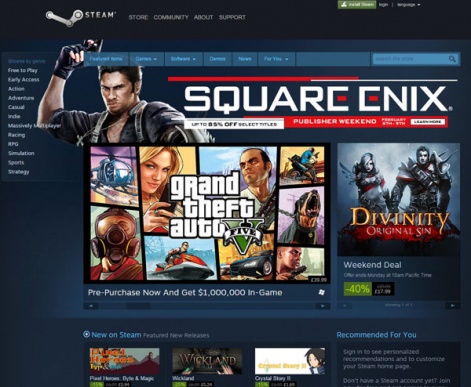
Anyway, I hope something does happen, as I don’t think Apple/Google will jump into new discovery mechanisms, they need a push.

Jon Hare is one of Europe's best known creative directors and game designers with over 10 international number one games to his name and nearly 30 years of experience in the games industry.
Jon co-founded and managed the legendary 1980/90s development company Sensible Software, creating games such as Sensible Soccer, Cannon Fodder and Wizball to great critical acclaim and commercial success and has also worked in senior posts in two of the UK's biggest games developer/publishers Codemasters and Jagex.
Since 1999 Jon has been one of the top game design and business development consultants in Europe working for many different publishing and development clients.
His own new company Tower Studios specializes in developing, publishing and licensing games on mobile and digital formats enjoying recent international success with the release of Speedball 2 Evolution and Word Explorer across numerous mobile and digital platforms.
Jon has also been a full BAFTA member for over 10 years, serving on the BAFTA Games Committee and is a regular Chairman of juries for BAFTA Games awards, as well as acting in a mentor capacity for both BAFTA and NESTA.
The good titles bubbling under will have more chance of breaking through and suddenly rising up if they were in a less cluttered environment.
All that is needed is some primitive kind of objective quality bar.
This way Apple would make more money, not less because hidden quality will be better discovered.
I also read all of David MacQueen's above wild-eyed, crazy person rant. Where is my cookie?
Just kidding: That was the best Maven thinking of 2015, David.
Factor in everything that David has preached while puffing out his chest and feigning to headbutt us, and toss in the fact that Long Tail profitability is extremely hard to maintain in a service-based environment - where you are paying for processors, bandwidth, support, etc. every month, at a minimum bar regardless of how many consumers are paying - and you have the makings for Chris Anderson's best-selling business book of 2016...
The Bankruptcy Tail.
First off, there are serious questions about the about the validity of Chris Anderson's Long Tail theory:
I, too, was mesmerized by Anderson’s book, helping to launch a self-service ringtone/wallpaper/mobile-video portal in 2006 (MyNuMo.com) and discovered that people didn’t want ringtones from their local bands, wallpapers of the school team etc. etc.
There may be a long-tail in games, but it’s exceedingly thin.
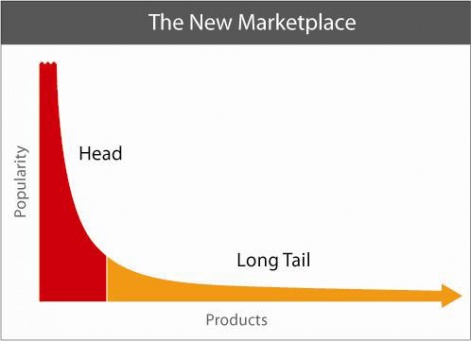
There’s a real issue to scale for many F2P games. If the games are social, that is... interactions with other players are a huge part of the experience (Poker, Trivia Crack etc.) the game must reach a sustainable level of liquidity to meet players expectations. More so for real-time multiplayer stuff like Poker, but still true for turn-based games like Words With Friends, Trivia Crack and our own Word Carnivale game.
That means a sufficient advertising budget to acquire players rapidly. Small developers may not have that resource and instead may need to depend on being featured, finding a publisher, or just having a viral success (it does happen, odds are on a par with the lottery).
I’ve been in the game industry forever and I can’t think of any time when it was harder to get a game noticed.William D. Volk
As mentioned, advertising is a open bidding marketplace, so the best performers (highest LTV) set the rates. What’s worse is that some companies are willing to pay for CPIs that exceed LTV’s, perhaps to achieve the required liquidity for the game, or to establish a base of users to directly market other products, or simply because they have the money and the VCs funding them want eyeballs at all cost for a possible acquisition play. That raises the CPI for all publishers.
My advice to F2P game developers/publishers who don't have $500,000 for a UA launch campaign?
- A. Partner with someone who does (have the $$$).
- B. Partner with a brand (Kim Kardashian as an example).
- C. Launch lots of quirky simple games, and see what sticks to the wall.
- D. Find a mid-core game segment that’s not being served by any mobile games at the present, launch a premium app. 100 Rogues being an example of this type of game, taking advantage of a old niche game.
- E. Start drinking heavily.
Really, I’ve been in the game industry FOREVER (think cassette tape delivery), and I can’t think of any time when it was harder to get a game noticed and/or make a game profitable.
Back in the NES days, we used to bitch about the entire process of getting games approved and manufactured (only 785 SKUs released in North America), but that was easy compared to what developers/publishers face today.
Not to mention the really significant risk of getting all the pieces right and having Apple/Google tell you NO!
More on that in the near future.
This all makes for quite personally painful reading seeing as I just shut down my fledgling game discovery service (EveryonesPlaying) that I still feel would have made a meaningful impact if only we'd had the resource to get it working. #sob
Putting aside my personal distress, I find it highly curious that so many learned industry people share very similar thoughts and desires regarding the app ecosystem and, in particular, how that affects how players and games get connected, but yet the platforms do not change mode.
Clearly the status quo works only for platform owners and a tiny number of very successful/well-placed publishers. As has been said, Apple have no intrinsic motivation to innovate or change course, so they won't. They sell shed loads of expensive devices. Happy days. For them.
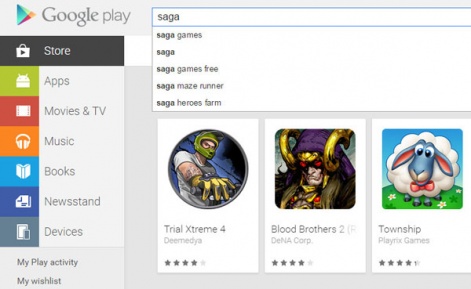
Google might....just might innovate, particularly as search is a key factor in enabling better discovery (and is plainly quite shit on all major stores right now).
More likely, I feel, is that an on-Android service will arrive that truly understands every game and gamer in a very nuanced manner and is thus very able to intelligently link publishers with players, and player with games in an effective way.
The many AdTech companies making umpteen gazillions right now won't like it as it will seriously disrupt there business but, resource not withstanding, I believe that this is a problem that technology can solve for the benefit of those who make games and those who play them.
Google will then buy said tech for 'all the money' and Apple will then pretend it doesn't matter to them whilst they slowly become less relevant.
...and I will say "that was my idea" and cry some more.
I believe Apple does want to clean up the App Store. Among all the stores, the App Store is the only one that doesn't behave from the perspective that no matter what happens they profit. They have a history of tweaking things like rankings algorithms, limiting distribution mechanisms that overly manipulate the store, etc.
I believe Apple does want to clean up the App Store.Dave Castlenuovo
I think the problem is identifying what to do in order to give quality apps an equal footing to user acquisition machines. They can't really ban advertising, they try to use their promo spots as best they can. Ping left a bad taste in everyone's mouth so I think it's going to be a long time before they try social discovery solutions like Spotify has.
I was thinking over the weekend that a trending list might be a good way to get new players some visibility. Rank the change in rank rather than the core numbers. About 5 minutes after having that thought I realized that would play straight into the hands of the user acquisition games. The trending list would basically be a who's who of the apps that spent the most advertising dollars that day.
Just leaving things to market forces is short term thinking. The last thing anyone wants is a crash like what happened on Facebook. Although that might be the only force that can actually make meaningful change in the market.
I agree, but I still don't think they'll do it without something compelling them to. If you have a product making $20 billion, would you risk a major change without a strong reason?
Although to be fair, and I'm proving myself wrong here, Apple did try and change discovery a bit, twice in fact, with Ping and Genius. But they had a "toe in the water" approach both times, and didn't risk putting either of those mechanisms at the core of the App Store.
So I suppose they might (and one can hope) but they are quite risk-averse if they have a successful product. As another example of that, how different is the iPhone 6 to the original iPhone? If it ain't broke...
Anyway, like I say I hope they do, but I think there's a better chance an outside force will change this, not the established players.
My points as someone who doesn't spend $500,000 on UA for a game are:
- Find nice niches in the red oceans
- Choose your battlefield of mobile games wisely against the big guys
- Do not clone others
- Be faster as the others
- Innovate where ever possible
- Take your chances in new platforms. We see enough blue oceans out in the market
- Stay small but big enough to get a nice portfolio of games out into the market. One game alone will not work
- Invest in your own IPs (I am not a fan of all those "brands" as they do not always work. I saw that in the J2ME and operator market. Brands mainly cost more than you really make)
- Keep your own strong IPs alive
- Stay agile
- Be creative in your UA and marketing
- Don't do what everyone else do - try out new ways
- Never give up. If it's a great game it has a chance out there
- Partner up with others
- If you can't beat them, join them - M&A will be big this year!
Is the games market easy? No, for sure not but it was never easy.
I completely agree with Harry. Most developers shouldn't care about top grossing nearly as much as they do.
These are billion dollar businesses up there. If you want to play in the same league, sourcing $500k+ for launch is the least of your concerns. You might need multiples of this to fund the actual development.
If you don't have that kind of money, then lower your expectations and seek success in niches. There's no shame in that. I don't consider myself a failure because our annual profit was "only" 7 digits.
Most developers shouldn't care about top grossing nearly as much as they do.Vladimir Funtikov
When you begin to really understand your players and give them what they need, you might even outperform the top guys in a given segment, simply because they're mass-market and you're specializing. Then you can think about scaling up UA, and the situation will look very different.
We talk to a lot of F2P devs, and most of them should really stop thinking about launch budget as if it was a bad habit.
What they need is some benchmark (e.g. LTV as function of retention, conversion and ARPPU) and enough time and talent to reach it. If they get there, they'll figure out UA. If they don't, then any UA budget is useless.
Building on that. I think the top grossing games skew people's understanding of what it takes to find success.
For a small indie game, I feel like a 3-week stay anywhere in top grossing followed by a slowish decline is a pretty good target - assuming you had a reasonably short dev cycle.
1-week in grossing because of an Apple promo and then a dive down the charts isn't good enough. The game needs to be able to hold onto the second and third week in order to generate decent chunk of revenue.
I wish there was a service that allowed us to isolate these kind of apps over the last couple years in order to identify niches. Sure App Annie allows you to look at those stats for any game, but I would be interested in finding the games I don't know that meet that criteria.
As was reaffirmed at #PGconnects, the market is still getting bigger and there are still a lot of folks out there and that don't yet have smart devices and for whom F2P is still viewed with distrust.
Thinking a little more holistically, therefore, there should in theory be more niches that smaller devs can go (should go) after this year that the big guys won't bother with, for example:
- There are many Android markets - research these and make games that closely align with the audiences and the types of devices that they use.
- Use smaller platforms (Windows Phone) to test game concepts ... ideally with some funding and/or other support from the platform if they are proactive about getting new devs on board.
- Try and find brands with meaningful audience reach and which you can create a game for that truly resonates with the brand, the audience, the platform and is timely. Make sure that the brand is genuinely able to get their hands dirty RE helping drive UA.
- Look at emerging markets. It seems that thousands of devs are working on VR but I don't hear about too many that are looking at smart watches.
Build games that are very targeted to particular demographics that are off the radar of the major western stores and big devs. I can't remember the name of the studio, but there is one company I read about that makes mobile games based on traditional table top and card games that have been played throughout the Middle East for hundreds of years [Peak Games? - ed].
If you are patient you might be able to build something big over time without having to raise huge startup and growth fundingKevin Corti
Those games will resonate with that audience strongly. They will be differentiated massively from other games in the stores. The developer can focus all their ad spend, marketing and PR on a much smaller region. They don't need to localise widely. King et al won't notice them and in any case wouldn't take them on as they are only interested in super mass casual games with generic global appeal.
Build a portfolio and cross promote to your own audience over the long term to amortise costs and maximise investment. Lots of small budget games making a 20% net margin have the same bottom line impact as one big game making a 20% net margin.
If you are patient you might be able to build something big over time without having to raise huge startup and growth funding (from VCs who will no doubt expect you to invest heavily in performance ads and clone Supercell). It also allows you to spread the risk overall and, conversely, to take bigger risks with new gameplay.

Oscar Clark has been a pioneer in online, mobile, and console social games services since 1998. He is also author of the book, Games As A Service – How Free To Play Design Can Make Better Games.
Tons of good stuff here but I think there are still areas worth pursuing.
First, I don't think this problem is just one of app stores but of the nature of VC funding verses publishing compounded by the success of open stores and tools to make game development something anyone can achieve; but without solving the Discovery problem.
The loss of publishers and physical retail is profound - although I much prefer the opportunities of this era and count my blessings I'm not in music or film. I feel that the democratisation of game development has been an amazing thing that has helped transform mobile gaming from a tiny niche largely laughed at by console game developers; but the gold rush era is over.
Effective discovery requires you raise the tide, not just to chuck a few pebbles in the water.Oscar Clark
Within just 6 years of the launch of the App Store we have seen developers learning how to exploit a global marketplace dominated by marketplace owners whose interest is essentially in the ecosystem of their hardware rather than the maximisation of the sale of digital products.
I know I bore people with my experience at 3UK, but we did things no mobile game retail I know of did before or since to manage the lifecycle of products which fostered not only retention, but a reason to spend more each month. In just one example we saw that when you displayed a ranking chart by sales you saw a reduction in sales - we lost 20% in revenue just 2 weeks when someone put this in whilst I was on holiday.
Sadly these lessons of retail are lost on the app stores because their success criteria is based on the contribution to the hardware business and the role of editorial. The rise of advertising networks is a natural consequence and at the same time benefits the app stores by providing a stream of content purchases.
There is no incentive for change inside those organisations. But I wonder how well they will respond when the market forces change (and they always do). Will we find ourselves reminiscing about the Apple days, like I do about my days as a operator?
In most markets this wouldn't matter as much as we would be able to target local stores, find different sources of retail or distribution. But we can't as we are (largely) locked into a global ecosystem which is suffering from an oversupply and with few ways to be picked up by your niche.
It's not that they don't exist at all, many developers benefit from test launching in specific territories or through adding more languages; some even still sell Java games in South America. But to get the most our of the niche markets usually requires a lot of effort, experience and contacts.
I know some developers put the blame on the free-to-play model. How dare those games able to make an decent average revenue per paying user put most of it back into acquiring more users? If they can generate sufficient revenue and retention to make it worth their while then that's obviously a good business decision; although getting that wrong is costly.
Being able to buy awareness and reach for your game works; but spending money isn't a panacea either. We have to constantly adjust and adapt and make sure our proposition is strong and the F2P model doesn't just have to be about profit - it can be used to provide sustainability too.
But what does success look like anyway? Does everyone have to spend $500k to launch a game?
We need to think outside the norm and try things that make sure we stand out. We don't have to play the same game as our competitors. There are many attributes that drive success and we can put our business in a position to take advantage of any luck we might get.
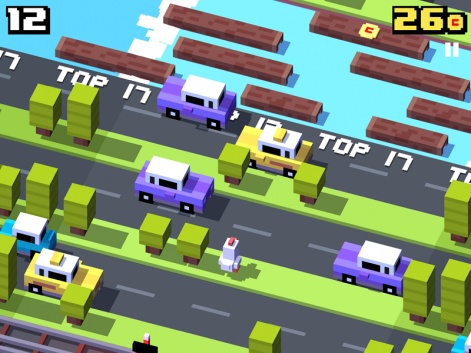
As Rami from Vlambeer said on the Indie Track at Pocket Gamer Connects London 2015, we need to look at the opportunity in every situation. My favourite example of the moment is Crossy Road. not just because they use Unity Ads (we just paid them $1 million in their first month) or because they use Everyplay (ok, I do love that!!!) but its what they did with PewDiePie.
We don't have to play the same game as our competitors. There are many attributes that drive success and we can put our business in a position to take advantage of any luck we might get.Oscar Clark
Now if you don't know PewDiePie (…what are you doing reading this Mavens column!) he is the biggest thing on YouTube with over 30 million subscribers and over 300 million monthly views. He talks (or should that read screams) about games in various ways and farts on his dog to boot. Hipster Whale (the Crossy Road's guys) decided to reach out to him by asking all their friends/fans to lobby for him to check out the game and see they had his dog in it. He loved it and started playing it on his channel. They got noticed by a lot of people.
Don't get me wrong the lesson of that is not to try to specifically lobby PewDiePie himself (try it but this will have diminishing returns). The point is to explore your own channels and to find routes to the people who will effectively advocate your game to the right audience. Use all the tools at your disposal from friends to social play to shared video and yes even paid advertising and PR.
But realise that effective discovery requires you raise the tide, not just to chuck a few pebbles in the water. Brand building happens when we use all of the levers at our disposal consistently and repeatedly. That takes effort and commitment and especially when using a medium like YouTube that takes authenticity and a willingness to listen to your audience.
It's incredibly tough to make a success in a mature industry like ours is right now and where, like Jon Hare said, games earn an average of £5,250 (actually it's worse than that as median income is $400). However, as professional developers we have the potential to deliver quality experiences which speak for themselves and to find our own distribution paid with cash or sweat.
The bottom line is that we have to work out what a realistic success looks like and then plan to build, shout and otherwise disrupt your way to achieve that.






























